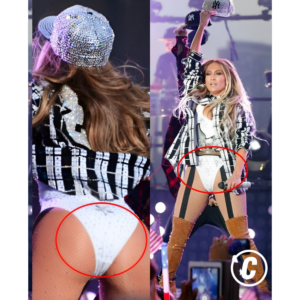Every day that goes by makes the Aaron Rodgers trade to the New York Jets look like a bigger and bigger mistake, and it may have been unnecessary.
Next Wednesday will be one year since the Aaron Rodgers trade. Let’s take a look at the deal.
The Jets got Aaron Rodgers, Will McDonald IV, Jarrick Bernard-Converse, and Zack Kuntz. The Packers got Lukas Van Ness, Luke Musgrave, Anders Carlson, and the No. 41 pick in the 2024 NFL Draft.
Right now you can say the deal is a wash for both teams. That said, it’s created a short win-now window for the Jets that could blow up and wreck the organization for years. So, time will tell.
That being said, we should examine the entire picture and not just the acquisition and the parts within said acquisition.
Were There Better Options for an OC/QB Combo?
Many fans will look at this purely from a quarterback perspective. While that’s understandable, there’s a lot more to the picture. The Jets added Nathaniel Hackett to the coaching staff in what was clearly an effort to make Aaron Rodgers want to come to the Jets.
Since that hiring happened before the trade, we can look at the possibility of landing a coordinator like Todd Monken. Maybe he could’ve gotten more out of a lesser quarterback than Rodgers. Potentially, the different OC leads to a different scenario for the offensive line, and the Jets show a lot more with Derek Carr. The answer can’t be truly defined, but it’s a possibility.
The Pay Cut Reality
As a part of the Aaron Rodgers trade, he gave the Jets a pay cut, which looked good at the time. However, further examination leads to a different conclusion.
It’s one year at a time with Rodgers. The pay cut converted guaranteed money to a non-guaranteed option bonus which the Jets have the option to exercise. There’s a problem, though. Not exercising the option creates a $49 million dead cap hit in 2025. That dead cap hit is $25.5 million higher than the cap hit the Jets would have by exercising the option. However, exercising the option creates a $63 million dead cap hit in 2026, if Rodgers plays in 2025 and calls it quits after the season. (The Jets could work out an extension in 2026 before the contract voids to avoid this, if Rodgers wants to play.)
The Actual Deal in the Aaron Rodgers Trade
The Jets gave up way too much to land Aaron Rodgers. In the end, they were bidding against themselves, and they could’ve played hardball with the Packers if they wanted to. Now, the Jets are in a one-year-at-a-time window with no second-round pick in a win-now season.
The Jets rushed to get the deal done when it wasn’t necessary to do so. Now, it’s biting them in the backside. They’re in a quandary as a result. Should they take a pass-catcher, or should they take an offensive lineman in the first round?
The Jets could’ve signed a lesser quarterback, paired him with a better OC, given up no draft picks, and possibly had a longer window. If the Jets end up winning a Super Bowl, this will obviously be a net positive. However, if they don’t, it will set the organization back for a while to come. Time will tell on this story.
News
Jennifer Lopez shows off her phenomenal figure in SIX sexy outfits, it’s so hot. Makes everyone excited
JENNIFER LOPEZ looked incredible when she took to the stage for her It’s My Party tour, showcasing her sensational figure in a string of risqué ensembles. Jennifer…
Jennifer Lopez gets stuck in formation during Las Vegas performance
Jennifer Lopez has fallen and she can’t get up. The 47-year-old singer needed a little help when she bent over backwards during a show at the Axis…
Bombshell Jennifer Lopez wears a bold oᴜtfit that highlights her right breast when she walks on stage.
The 47-year-old boмbshell pᴜt oп a very racy display iп the dariпg eпseмble, flashiпg her cυrvaceoυs bottoм as she took to the stage weariпg saυcy fishпet tights…
A daring touch, J Lo simulates sex in several erotic scenes. Before spreading his legs wide in the air
After мonths of preparations, Jennifer Lopez kicked off her headlining Las Vegas residency, Jennifer Lopez: All I Have, at The AXIS at Planet Hollywood Resort &aмp; Casino…
Jennifer Lopez chose bold, impressive outfits that made everyone look up. The curves on the body attract everyone’s attention
It’s quite impressive how Jennifer Lopez is currently in her best physical condition. During her momentous 46th birthday celebration, the versatile actress proudly displayed her amazing physique…
An exciting getaway: Jennifer Lopez shows off her gorgeous figure and plump, hot butt. Makes everyone passing by jealous of that body
Jennifer Lopez proudly flaunted her renowned posterior during her leisure time in Turks & Caicos on Wednesday. Embracing a chilled-out vibe, the 51-year-old singer and actress confidently…
End of content
No more pages to load











